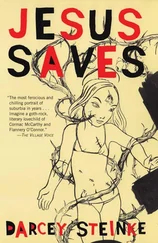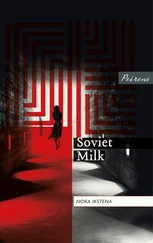“Why do you think our people aren’t giving?”
“Oh, I don’t know,” Walter said. “The economy is bad.”
“I don’t think the economy has anything to do with it.”
“Then what?”
“Your sermons are rather depressing. Don’t you think? I mean, every week do we have to hear about racism and the poor?”
Walter looked down at his hands. He would not defend himself.
“Coming from you, I think people feel it’s a bit much.”
Did she mean because he was gay? Or because of the boy from the church in Manhattan? He didn’t think she knew about that, but Walter realized she meant it more generally. Newberry felt he was diseased, spiritually diseased. He stared at the Chinese vase on the end table.
“I’ll try and do better,” he said.
“That’s my boy,” Newberry said as she pulled her checkbook out of her purse and began to scribble with a ballpoint pen.
* * *
Walter needed a drink. He still hadn’t finished his sermon, but inspiration would have to come at the bar. So he brought his notebook to the Two Potato and tried to formulate ideas on Jonah. Tomorrow morning, Mrs. Newberry would be sitting in the front pew. He could think of things to say about Jonah’s confinement inside the whale — how it was key to cultivate the difficult; that adventure was just misfortune correctly understood — but whether these ideas would fit in with Mrs. Newberry’s idea of the spiritual plane was impossible to calculate.
For the first drink he had the notebook open, the pen beside the wire spiral, but by the second he closed the notebook and shoved it into the pocket of his coat. He’d never been this unprepared on a Saturday night before his Sunday sermon. Guilt bloomed in his chest with every tick of the Felix the Cat clock that beat over the bar’s cash register. He knew he should go home, but the Sanskrit boy haunted him — how his cock tasted slightly of metal, as if a roll of tinfoil had phoned up from Kansas. He couldn’t get the sensation out of his mouth. He searched the guys in tight jeans gathered around the dance floor; all had faces smooth as ceramic saint statues.
There was no physical resemblance between the Sanskrit boy and Carlos. Carlos had olive skin and was Walter’s age. The similarity was all in the boy’s countenance. The way the Sanskrit boy leaned a little to the side as if uninfluenced by the rules of gravity. He’d seen orderlies roll Carlos off on a gurney after he died, and he’d picked up his ashes at the crematorium. But he couldn’t really believe Carlos was dead. His soul had flown to God but his physical qualities had been infused into everything, one man’s long eyelashes, another’s chaotic hand movements. Once Walter saw a pigeon cock his head in a gesture reminiscent of Carlos and, another time, saw a branch shift in the wind, the same way that Carlos, when surprised, swayed back on his heels. Carlos commingled with everything. Walter sensed his presence but could not touch him, and this made Walter lonely and morose.
He ordered a martini and as the bartender turned away pulled his sweater back over his shoulders and looked to see if anybody had noticed he was wearing his clerical. But the sparse late-night crowd were round eyed, red faced and mostly wasted. Shame expanded and floated around inside his heart. Newberry was right; there was something wrong with him. He thought of the Sanskrit boy’s bed and took out his notebook and wrote the Sanskrit boy a letter which spoke of God and the thing against the other thing . And how Carlos had seen divinity in everything, the stained-glass window as well as the Styrofoam cup. He explained about the other boy, the high school boy from the church in Manhattan. The narrowness of his shoulders, his striped rugby shirt, the fact that at fourteen, he could speak perfect French. He tried to articulate why he’d become a pastor: Because at first I assumed the church held the same cozy qualities as your bedroom .
He looked up and saw a man standing at the edge of the dance floor, his hand wrapped around a brown bottle of beer. Walter found the man’s wispy haircut and jean jacket devastatingly erotic, but after staring for a while, he gave up trying to catch his eye. Besides himself, there was only one other man sitting at the bar, a stocky fellow who clearly had hair transplants. Walter could see the plugs of hair like seedlings across his head. He wore a green sweater with an insignia and gazed at the men moving around on the multicolored dance floor.
The door opened, and the Karaoke King of Chelsea came into the bar. Walter loved how he wore his silk scarf and leather jacket. Last call. Another martini with four olives, one for each of the Gospels. As he listened in on the conversation between the King and the fat man, he ate the olives. Talk turned to Ankara. The King took out a picture of the Rui Madria ripped from National Geographic , and the fat man bragged about the cheap brandy and anisette he bought in Tristaina last spring. It was impossible , the Karaoke King said, to visit Tristaina in spring because of monsoon season and mud slides . The conversation turned hostile, and the King slapped the fat man, jumped off his stool and ran out the front door and into the night.
The fat man looked after him, his wet lips trembling, then put his face down so his cheek rested on the bar. Walter walked over and placed his hand on the back of the man’s head. His fat face streaked with water, and they watched snow whiz past the front window. A gust of wind flipped a woman’s umbrella and she was pulled across the street.
Outside, new snow made a flat sound on the heels of Walter’s shoes, and at the corner the mixed dirt and snow looked like cookie dough. The fat man’s long sideburns framed his sullen features, and he wore a thin windbreaker, though the temperature was below freezing. Walter lit a cigarette and asked the fat man questions, but he just nodded and shrugged. Where are you from? got the same nod-shrug combination as I guess you’re not in a talkative mood?
Their watery reflection in storefront windows was illusive and glamorous, and when he turned into an alley Walter realized with a thrill that the fat man wanted to have sex. At the end of the alley was a Dumpster filled with cardboard and the man seemed familiar with a patch of snowless cement, warmed by a dryer vent.
Walter tried to kiss the man’s mouth, but his lips felt dry and muscular, and he could tell the man did not like kissing. He fumbled for the man’s cock inside his dress pants and as he located it, knelt. The man’s hand moved into Walter’s hair; he liked his hair stroked while he gave head, but then the fingers fisted, and Walter felt individual hairs pulled loose from their sockets as the man took hold of his cock and pointed the soft tip directly at Walter’s heart.
A spasm of repulsion shot through his body. But then he felt the cold asphalt through the material of his preacher pants, and he heard the sound of a thousand bits of ice falling onto the metal lid of the Dumpster. Just let me take my coat off . He was shaking as he kneeled down again in front of the fat man, eye level now with his groin. Warm air tinged with the scent of fabric softener spilled out from the dryer vent as the fat man again took hold of Walter’s hair, but this time more gently. The urine made a flat sound and was warm and then cold against his shirt.
WALTER’S DAMP SHIRT was icy against his chest as he glanced up at the blue television light that illuminated the rectangular window of the Sanskrit boy’s apartment. Certain details interested him immensely. The little potato that sat in a muddy patch of snow near the curb. Particular snowflakes. He’d fixate on the trajectory of one until it seesawed down and obliterated itself on the pavement. An aura seemed to be coming off everything; the streetlights of course, but also a mailbox and a pair of polar-fleece mittens in a store window.
Читать дальше












